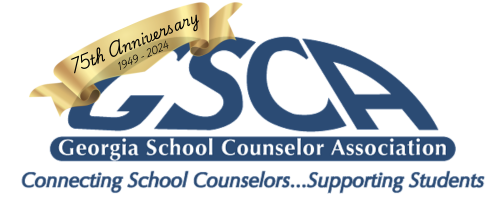GSCA Position Statement: Diversity, Equity and Inclusion
Georgia school counselors develop and implement programs that promote diversity, equity, and inclusion to ensure the affirmation of all student identities including race, gender, gender identity, sexual orientation, ethnic background, English proficiency, faith, socioeconomic status, family composition, or disability.
The School Counselor’s Role
School counselors develop and implement programs that promote diversity, equity, and inclusion for students regardless of race, gender, gender identity, sexual orientation, ethnic background, English proficiency, faith, socioeconomic status, family composition, or disability.
To promote diversity school counselors:
- Include and advocate for diverse representation in lessons, student leadership roles, school counseling advisory council members,
- Affirm diverse cultures and backgrounds of students and staff
- Collaborate with stakeholders in order to highlight the importance of systemic representation of diversity in all aspects of the school
- Use of consistent inclusive language
- Teach lessons that expose students to various cultural and social groups to create a campus that recognizes the contribution of all people
To promote equity school counselors:
- Acknowledge the disparity and gaps in school data. Provide professional development for faculty/staff in order to create systemic change
- Provide professional development pertaining to anti-biased, anti-racist, culturally relevant/responsive/sustaining teaching
- Advocate for equitable access to opportunities (student leadership, rigorous courses, classroom contributions)
- Teach academic, social/emotional, and college and career lessons through culturally sustaining practices
- Engage in ongoing self-reflection and self-awareness around personal bias and professional practices.
- Be conscious of the use of school resources, teaching, engagement and technology practices and use.
To promote inclusion school counselors:
- Embrace students’ lived experiences and personal narratives
- Apply cultural relevance in counseling lessons and activities
- Advocate for cultural relevance, responsiveness, and sustainability in classrooms
- Create and advocate for positive and safe learning environments for all students
- Use of consistent inclusive language
Summary
Georgia school counselors recognize that students regardless of race, gender, gender identity, sexual orientation, ethnic background, English proficiency, faith, socioeconomic status, family composition, or disability are worthy to be supported through a lens composed of diversity, equity, and inclusion. Georgia school counselors will advocate, and take actionable steps by promoting diversity, equity, and inclusion in their school counseling program. In doing so, Georgia school counselors ensure their school recognizes the contributions of all people are vital for securing a diverse, equitable, and inclusive environment.
